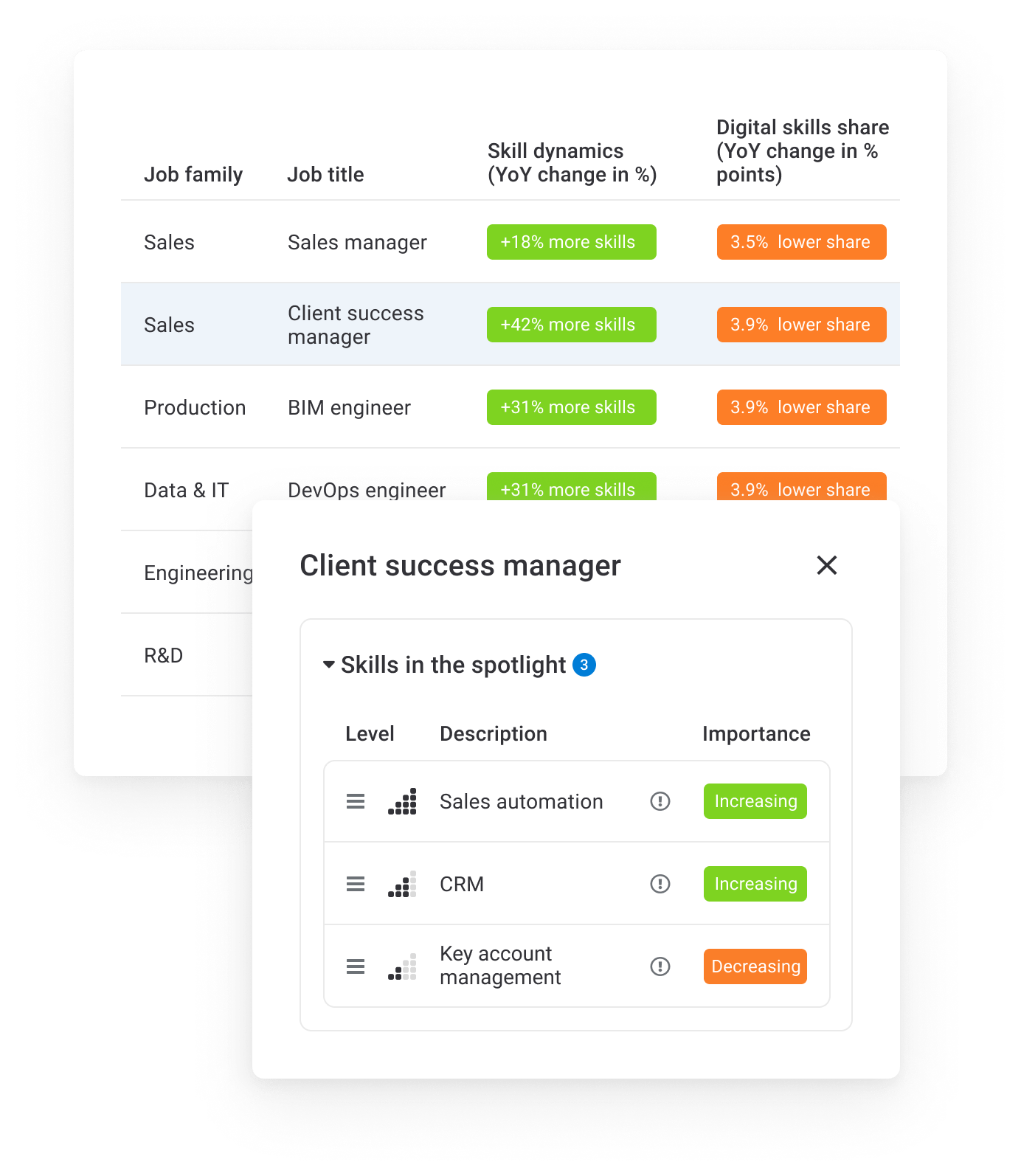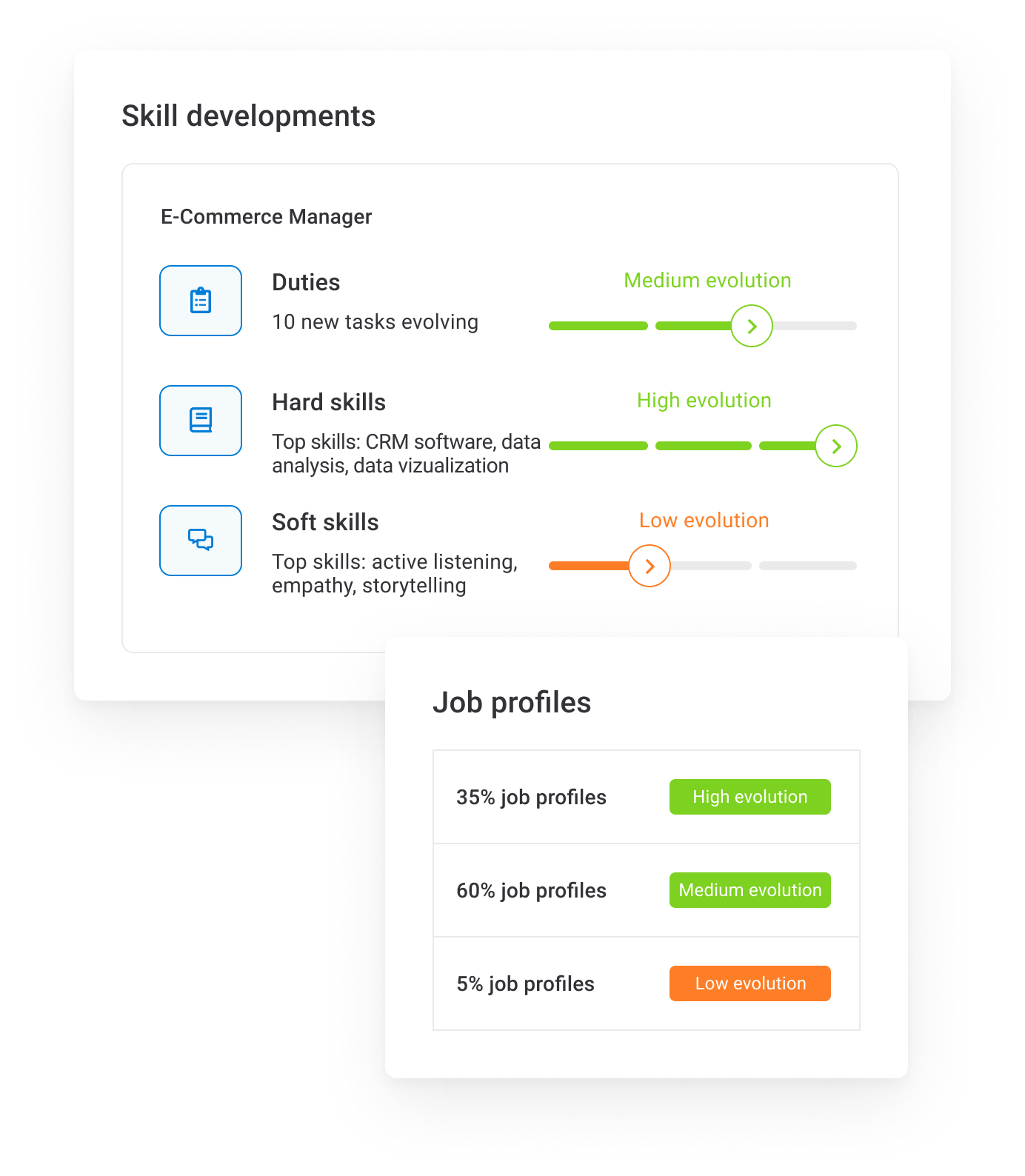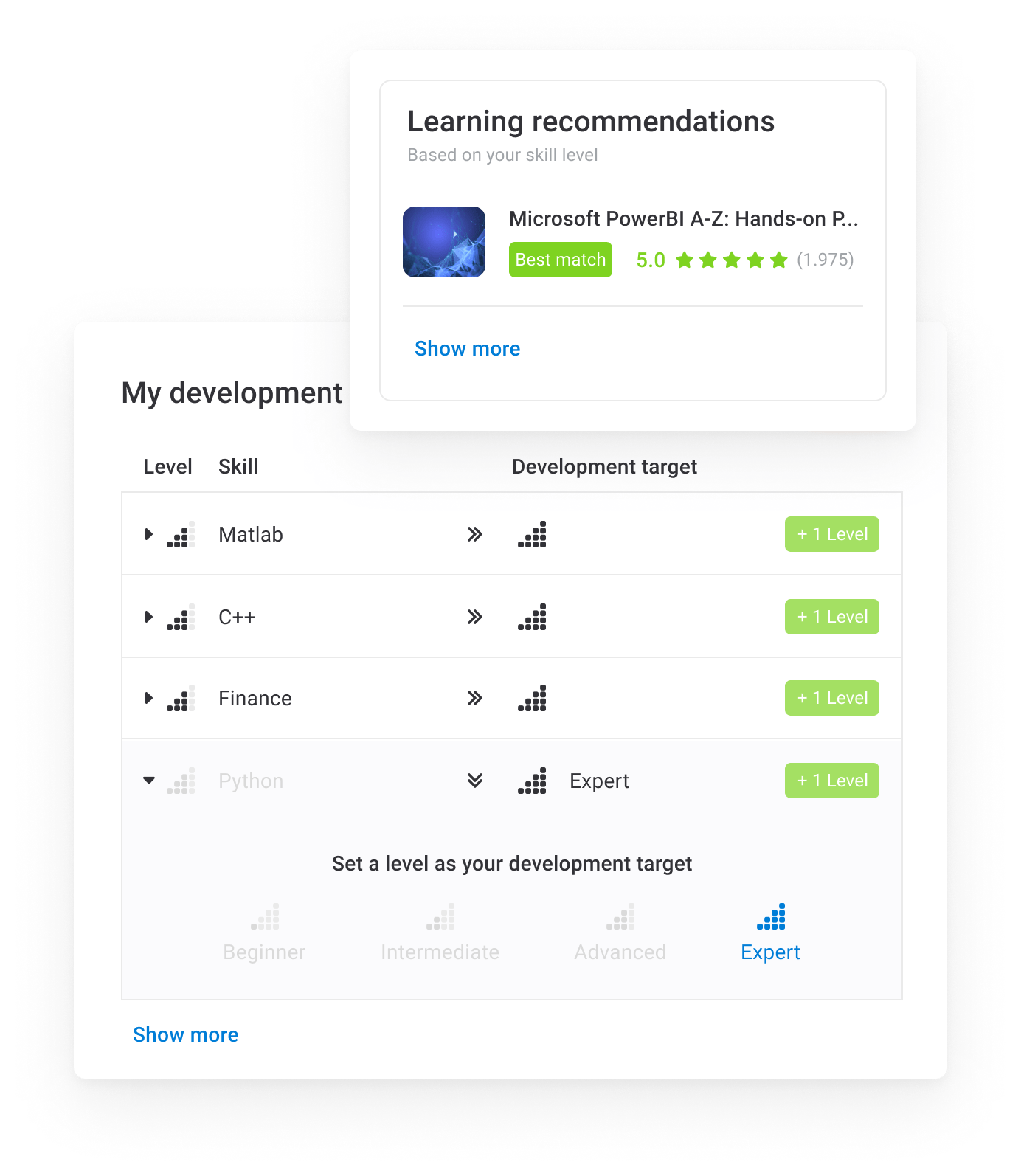Future-Proof Your Workforce With Smart HR Tools
HRForecast provides you with Big Data insights & services to make better workforce & business decisions.

Find out how Siemens has benefited from our services
Learn more
 50%
50%
of the DAX 30 companies work with us
Learn more
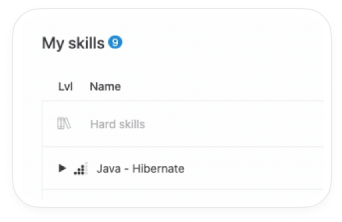 Use cases
Answer to your HR questions.
Use cases
Answer to your HR questions.
 smartData
Market Intelligence
Access to the world’s largest labor market database to tune your business and HR.
smartData
Market Intelligence
Access to the world’s largest labor market database to tune your business and HR.
 A skill-based organization approach
A skill-based organization approach
 Content intelligence insights, tips, and solutions
Content intelligence insights, tips, and solutions
 Use cases you can cover with HRForecast
Use cases you can cover with HRForecast
 What is digitalization?
What is digitalization?
 Talk with Partha Neog
Talk with Partha Neog
 Business restructuring in time of COVID-19
Business restructuring in time of COVID-19
 How to transform the HR with future workforce insights
How to transform the HR with future workforce insights
 Building a future-proof workforce: what you need to know
Building a future-proof workforce: what you need to know
 Plan the future of HR: your future workforce and talent demands
Plan the future of HR: your future workforce and talent demands
 Future of people analytics
Future of people analytics
 Future job roles & skills in Norwegian construction
Future job roles & skills in Norwegian construction
 Talent acquisition dialogue
Talent acquisition dialogue
 Future Skills Report Chemie 2.0
Future Skills Report Chemie 2.0
 Navigating the Impact of AI: Empowering the Workforce for Tomorrow
Navigating the Impact of AI: Empowering the Workforce for Tomorrow
 Invite us to your event
Invite us to your event

See why 100+ companies choose HRForecast.
Know more
HRForecast provides you with Big Data insights & services to make better workforce & business decisions.












We help you build a skilled and future-proof workforce through data-driven insights and SaaS solutions.
See why more than 100 companies choose HRForecast for people analytics.
successfully completed projects
of the DAX 30 companies work with us
with state-of-the-art technologies like big data and AI to deliver robust and scalable software solutions
We are stated as one of the fastest growing technology companies in Germany
We are listed by Bersin among the top people analytics providers globally, leading in Europe
We have individual instances for each client to provide maximum security and protection
Our solutions are designed for the fast implementation and are ready to use within a few weeks
We deliver fully customizable solutions that solve your tasks and are easy to integrate with your existing software
Do you know which half it is within your company?
Learn how companies make data-driven workforce decisions with HRForecast.

“HRForecast’s data analytics driven approach delivers tangible value and insights to inform and shape Senior Business and HR leadership strategic workforce planning decisions.”
Alexis Saussinan, Global Head of People Analytics & SWP, Merck Group
View case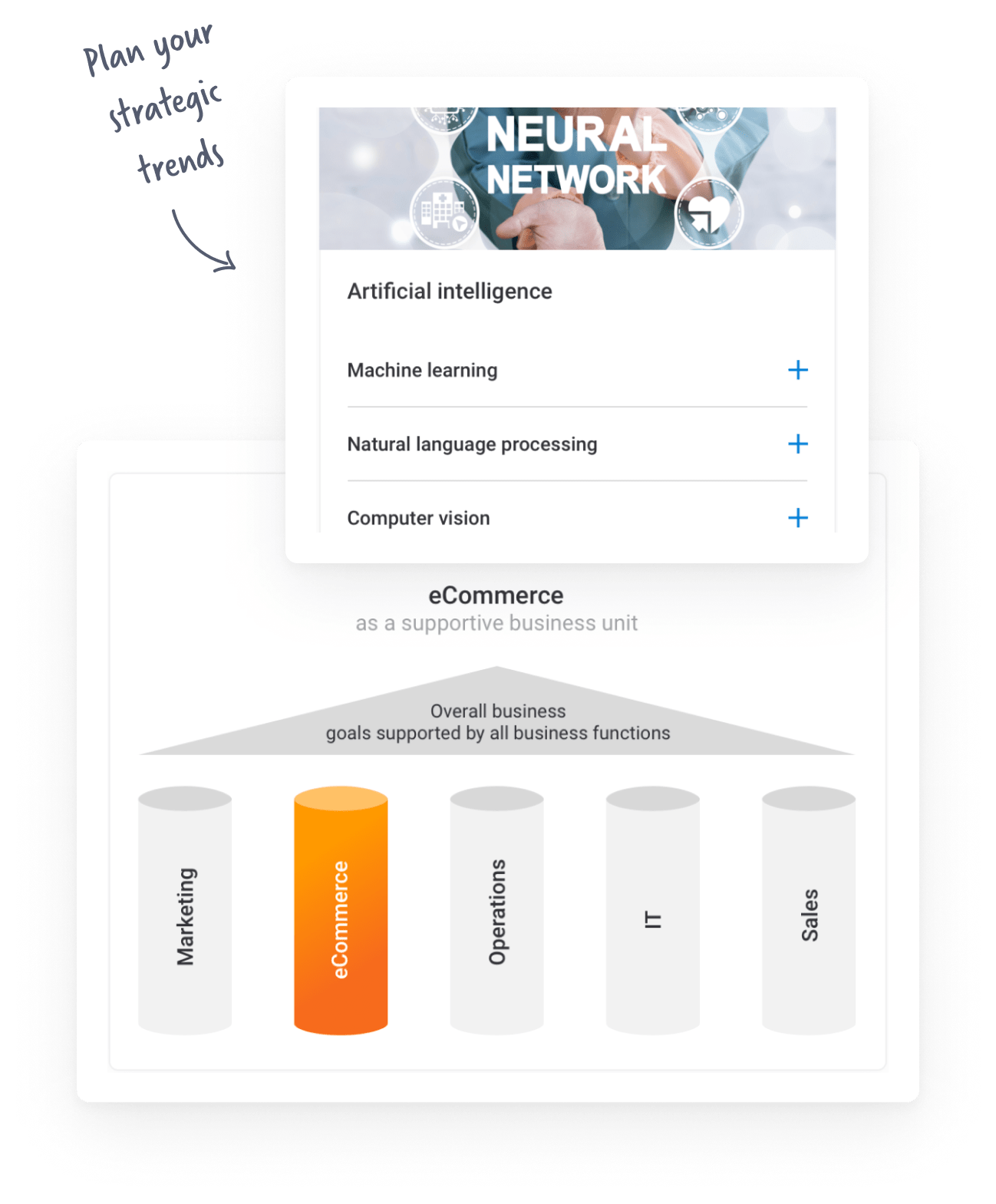

“I was impressed by the ease with which the Big Data concept of HRForecast provided transparency, benchmark information and therefore a target-oriented analysis of skills.”
Michael Herrmann, Managing Director, Lufthansa Systems Hungary
View case

“With HRForecast we were able to define necessary skill profiles and training recommendations in an automated way. We were able to better concentrate on alignment with experts as well as on a program guiding.”
Thomas Berthold, Head of Expert Qualification Management, Deutsche Telekom AG
View case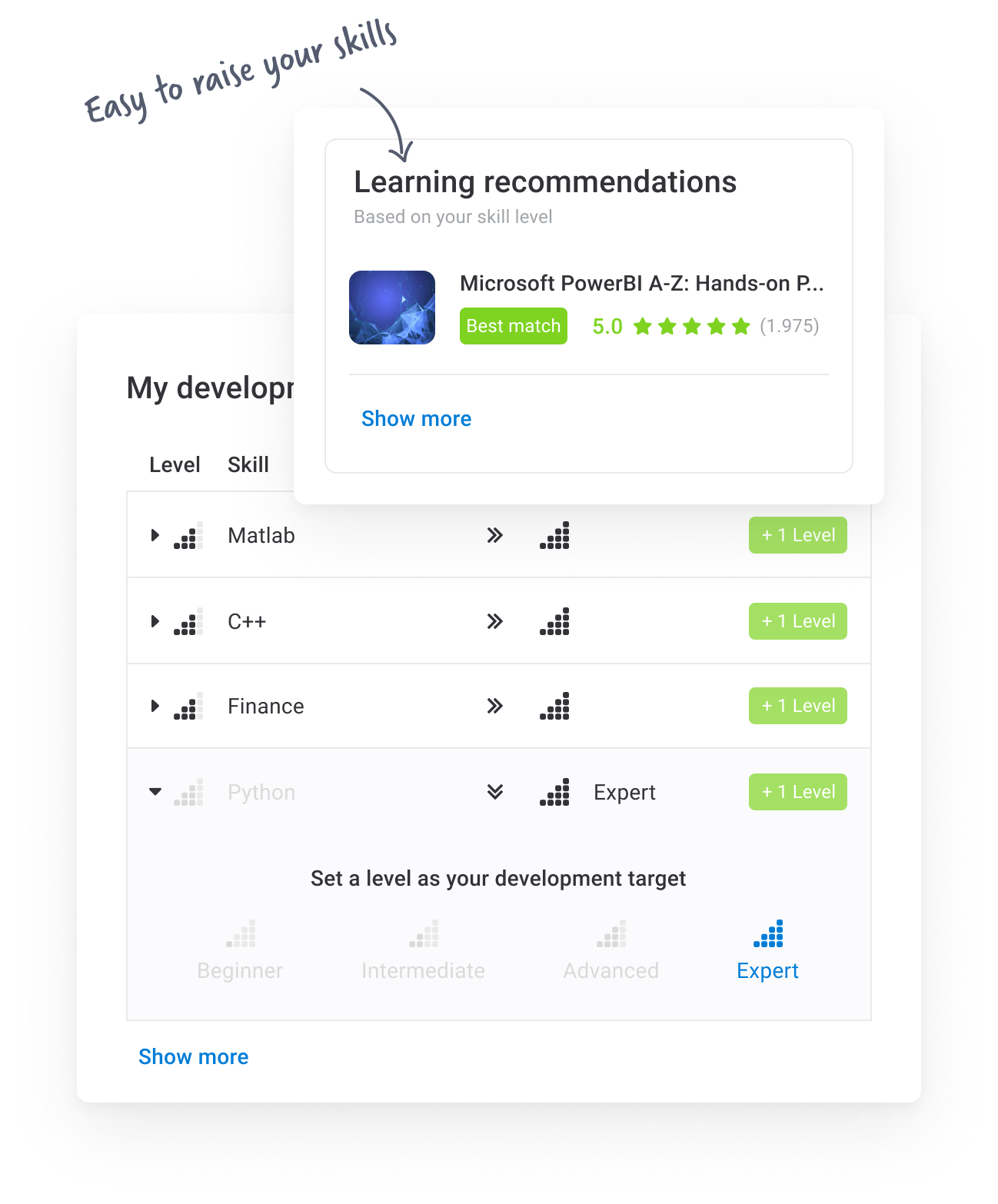

“We conducted our first pilot with HRForecast thinking big data had potential, however we were amazed at the transparency and insights it delivered. Since then we have conducted several projects with HRForecast.”
Dr. Ariane Reinhart, Member of Executive Board, HR
View case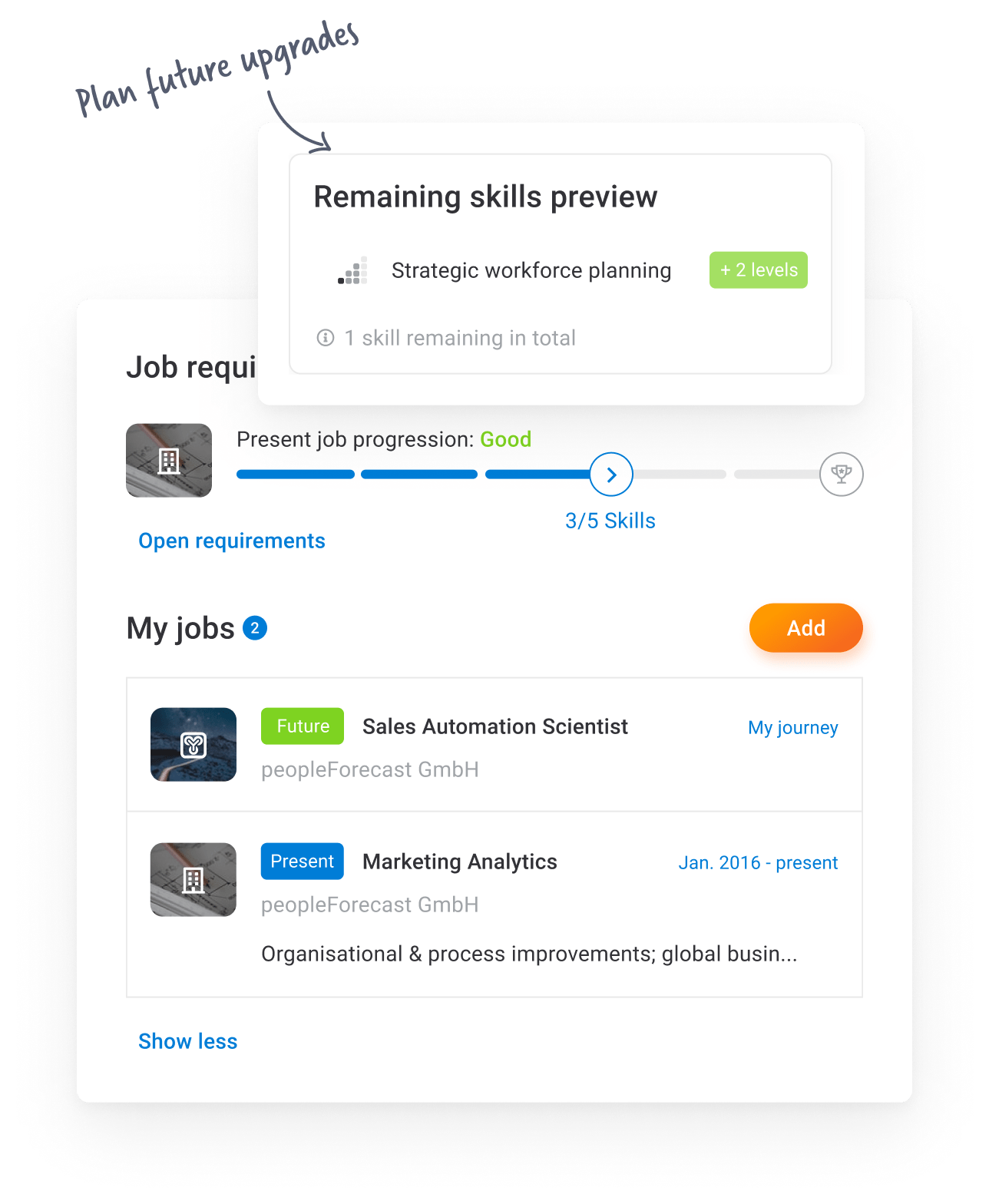






Join our HR community on LinkedIn with our daily updates, industry news, and engaging conversations.
Our articles are your source of inspiration and useful content. Never miss a thing with our timely emails.
 info@hrforecast.de
info@hrforecast.de
 recruiting@hrforecast.de
recruiting@hrforecast.de
2023 © Copyright - HRForecast | Imprint | Privacy policy | Terms and conditions (MSA)

